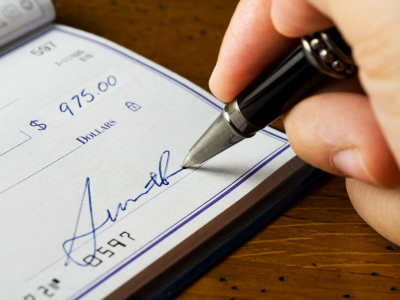
by Ruckertax | May 9, 2014 | Featured-on-home-page, Frequently Asked Questions |
TABLE OF CONTENTS How do automated teller machine (ATM) and other electronic transfer transactions work? What should I do if I find an error related to an electronic fund transfer or ATM transaction? What happens if my ATM card is lost or stolen? Will I be able to use my ATM card overseas? How will I know a pre-authorized credit (such as automatic payroll deposit) has been made? How do I stop a pre-authorized payment? How do I protect my ATM and debit cards against fraud? HOW DO AUTOMATED TELLER MACHINE (ATM) AND OTHER ELECTRONIC TRANSFER TRANSACTIONS WORK? There are various transactions that fall under the umbrella term “electronic funds transfer.” Automated Teller Machines (ATMs). You can bank electronically and get cash, make deposits, pay bills, or transfer funds from one account to another. ATM machines are used with a debit or EFT card and a code, which is often called a personal identification number or “PIN.” Point-of-Sale (POS) Transactions. Some EFT cards can be used when shopping to allow the transfer of funds from your account to the merchant’s. To pay for a purchase, you present an EFT card instead of a check or cash. Money is taken out of your account and put into the merchant’s account electronically. Preauthorized Transfers. This is a method of automatically depositing to or withdrawing funds from an individual’s account, when the account holder authorizes the bank or a third party (such as an employer) to do so. For example, you can authorize direct electronic deposit of wages, Social Security, or dividend payments to their accounts. Or, you can authorize financial institutions to make regular,...

by Ruckertax | May 9, 2014 | Featured-on-home-page, Uncategorized |
What type of account should you keep your money in at a bank or savings and loan association? How can you find the account that will charge you the least amount of money for the services you need? This Financial Guide helps you choose the most cost-effective type of account. TABLE OF CONTENTS Comparing Types Of Accounts Choosing An Account Getting A Better Deal Protecting Your Account Using Electronic Fund Transfers Correcting Errors Common Questions About Pre-Authorized Plans Government and Non-Profit Agencies Bank accounts are a basic part of managing your money and nearly everyone has a bank account of some sort, whether it’s a checking, savings, or money market account. Features and costs of accounts can vary greatly among institutions, so it is important to shop around when looking for a new account. You should also ask questions and negotiate fees and services with your current account. You may discover that you do not need to pay many of the fees you are currently paying. This Financial Guide discusses the various types of bank accounts, and provides suggestions for finding the lowest-cost account that will provide you with the services you want. In addition, it tells you what you need to know about Electronic Funds Transfers – how to get the best use from ATM cards, pre-authorized transfers, and point-of-service payments. COMPARING TYPES OF ACCOUNTS The accounts offered by depository institutions generally fall within one of these types: 1. CHECKING ACCOUNTS With a checking account you write checks to withdraw your deposited funds from the account. Checking accounts provide you with quick, convenient and frequent access to your...
by Ruckertax | May 5, 2014 | Featured-on-home-page, Uncategorized |
A good business structure is the first step to reducing risk and paying less taxes. An LLC is not a tax structure. There is no such thing as an “LLC Tax Return”. The LLC can elect to be taxed as an S-Corporation, Partnership, or any other structure. If no election is made and you are the sole owner, you will be treated as a sole proprietorship. If there are multiple members, you will be treated a…s a general partnership by default. The sole proprietorship (Schedule C) is a bad business structure. It puts everything you own at risk and subjects you to an excess tax of 15.3 percent self-employment tax on all net income. You are also taxed at the individual rate as well. If you own a business...




